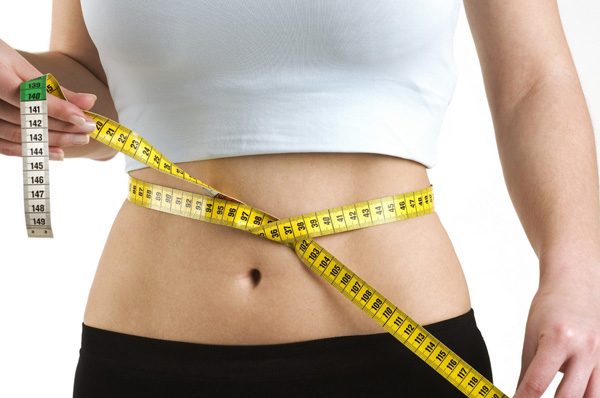Disclaimer: The views, suggestions, and opinions expressed here are the sole responsibility of the experts. No Scoop Today USA journalist was involved in the writing and production of this article.
Really lessen Dementia hazard by Drinking coffee?

Another examination from The Institute for Scientific Information on Coffee says that drinking espresso may diminish the danger of creating neurodegenerative maladies, for example, Alzheimer’s and Parkinson’s.
“Research suggests that a higher intake of coffee and caffeine, up to 5 cups of coffee per day, could act as [a] preventative on the risk of developing neurodegenerative conditions, including Parkinson’s disease,” Elisabet Rothenberg, the lead creator of the examination and partner teacher at Kristianstad University in Sweden, disclosed to The Mirror.
It’s essential to take note of that, as per its site, individuals from the Institute for Scientific Information on Coffee (a not-revenue driven association), incorporate six significant European espresso producers.
All things considered, this isn’t the principal concentrate to take a gander at espresso and neurodegenerative maladies. “There have been some scientific studies that have found a relationship between coffee consumption and a delay in the onset of Alzheimer’s,” Keri Gans, registered dietitian and author of The Small Change Diet, tells Yahoo Lifestyle. “However, more research is needed.”
A recent report distributed in the diary Frontiers in Neuroscience found a comparative relationship between espresso utilization and a decreased hazard for Alzheimer’s and Parkison’s.
In that review, scientists investigated the potential “neuroprotective effects” of specific fixings in espresso. One fixing specifically, phenylindanes — framed when espresso beans are cooked (and found in higher sums in dull meals), as per study creators — restrains both beta amyloid and tau, two protein pieces regular in Alzheimer’s and Parkinson’s, which scientists called “noteworthy.” In the investigation, they composed that phenylindanes are a “promising lead for the development of drug-like molecules to treat neurodegenerative disorders.”
While some examination results are promising, Diane Vizthum, enrolled dietitian and research nutritionist for Johns Hopkins University School of Medicine, reveals to Yahoo Lifestyle that a portion of the medical advantages related with espresso are only that — relationship, with the Alzheimer’s Society throwing a distrustful eye, expressing that, now and again, “the results cannot distinguish between cause and effect.”
Espresso may help with different infections
In any case, the well known refreshment may have other medical advantages past conceivably securing against neurodegenerative sicknesses. “Other studies that have looked at the consumption of coffee/caffeine have revealed a possible reduced risk of heart disease, Parkinson’s, certain cancers, and type 2 diabetes,” says Gans.
Some proof drinking espresso may help improve glucose.
A recent report in the American Chemical Society’s Journal of Natural Products found that two fixings in espresso, cafestol and caffeic corrosive, “increased insulin secretion when glucose was added.” The researchers also found that cafestol in particular “increased glucose uptake in muscle cells, matching the levels of a currently prescribed antidiabetic drug.”
Other research, remembering a recent report for the appropriately named diary, The Prostate, has demonstrated that substances in espresso (specifically, cafestol and kahweol acetic acid derivation) restrain the development of prostate malignant growth.
Drinking espresso has additionally been connected to a lower danger of colon malignant growth, as indicated by 2016 investigation of in excess of 5,000 men. “The more coffee consumed, the lower the risk,” Stephen Gruber, MD, PhD, senior creator of the examination and executive of the USC Norris Comprehensive Cancer Center, told ScienceDaily. The specialists found that expending moderate measures of espresso (1 to 2 servings day by day) was related with a 26 percent decreased danger of colorectal malignant growth, while drinking more than 2.5 servings every day was related with up to a 50 percent decrease in hazard — and it didn’t make a difference whether the espresso was charged or decaffeinated.
There is such an unbelievable marvel as an excessive amount of espresso
In spite of the fact that espresso, when all is said in done, is sheltered to drink, there is such a mind-bending concept as something over the top. A recent report distributed in The American Journal of Clinical Nutrition found that drinking at least six cups of espresso for every day can raise the danger of coronary illness by up to 22 percent. The scientists found that over the top espresso utilization can expand hypertension, which can prompt a few medical problems, including coronary illness.
So what’s a decent sum espresso consumers should go for? Vizthum discloses to Yahoo Lifestyle that the suggestion for the normal solid grown-up is around 3-5 cups every the very first moment (8-oz espresso has 80 to 100 mg of caffeine), or up to around 400 mg of caffeine day by day (ladies who are pregnant or breastfeeding should top caffeine at 200 mg). However, Vizthum brings up that, even inside that range, it truly relies upon the person. “Some people feel fine at that level, but others can feel jittery, anxious, and have a rapid heartbeat,” they says.
Vizthum additionally takes note of that “when you start adding cream and sugar, that can make it a less healthy beverage.” As Gans puts it, some people are “making their daily cup of joe more like a slice of cake.”
While devouring espresso may accompany a few medical advantages, that doesn’t mean people should head out to their closest Starbucks in case people’re not as of now an espresso consumer. “If you don’t like coffee, you don’t need to start drinking it,” says Gans.






